Reimagine – Recreate – Restore the Ecosystem: Clarion Call of World Environment Day 2021
Despite the second wave of Covid-19 Pandemic, the entire humanity did not forget to observe the World Environment Day. This year’s theme of World Environment Day “Reimagine – Recreate – Restore” reminds us to rethink for our planet’s ‘Ecosystem Restoration’. Ecosystem restoration broadly speaks about preventing and reversing the degradation of ecosystem – to go from exploiting nature to healing it i.e. landscapes, lakes and oceans to regain their ecological functionality. As we know, healthier ecosystems, with richer biodiversity, yield greater benefits like more fertile soils, bigger yields of timber and fish, and larger stores of greenhouse gases.
 Keeping the above background in mind, CYSD, in its south Odisha operational area, has observed the World Environment Day (5th June). The purpose was to spread awareness among the people in the community, especially the tribals about the threat to our environment owing to rising pollution level & climate change; and the necessity of improving the quality of forest through forest protection and regeneration. Reducing disaster vulnerability and addressing climate change concerns being one of the most important thematic interventions of the organization, efforts were made towards forest protection and regeneration through organizing village/community level meetings, creating awareness, initiating plantation and seed dibbling drives.
Keeping the above background in mind, CYSD, in its south Odisha operational area, has observed the World Environment Day (5th June). The purpose was to spread awareness among the people in the community, especially the tribals about the threat to our environment owing to rising pollution level & climate change; and the necessity of improving the quality of forest through forest protection and regeneration. Reducing disaster vulnerability and addressing climate change concerns being one of the most important thematic interventions of the organization, efforts were made towards forest protection and regeneration through organizing village/community level meetings, creating awareness, initiating plantation and seed dibbling drives.
The Day was celebrated in 20 villages under 7 Blocks – Kundura, Boipariguda, Dasamantpur, Laxmipur and Narayanpatana of Koraput District, Khairiput Block of Malkangir District and Kolanara Block of Rayagada District. A total of 250 members including Foresters, PRI members, village leaders, members of Producer Groups, Students and VDVKs members participated in the programme adhering the Covid-19 protocol behaviour.

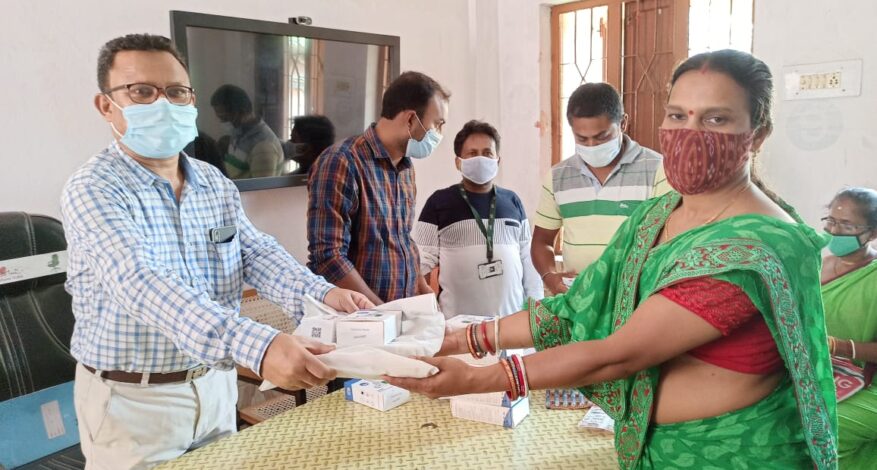
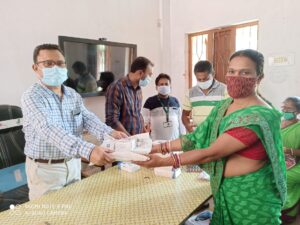 Learning from last year’s experience, CYSD has geared up its response in extending all possible support towards minimizing the impact of this deadly virus. With a strong presence in the rural-tribal areas, CYSD through its large Community Based Organizations (CBO) network, dedicated Community Resource Persons (CRPs), Warriors of SGBV (Sexually Gender Based Violence), Grassroots Volunteers, Gram Sathinis and Youth Leaders to assess the likely impact, especially on vulnerable sections. This could help the organisation measure the deficits in existing local level healthcare facilities / systems; and extend its support in the form of life saving equipment/s required for emergency medical care. In last week (3rd June), CYSD has organised a block level orientation programme on “Use of Oximeter and Digital Thermometer” for frontline workers, especially ANM & Asha workers from 18 GPs of Thakurmunda block, Mayurbhanj district. A total of 26 ANMs, 12 Ashas, 15 health staffs, 4 staff from CHCs participated in the orientation programme. The programme focussed on the importance of early identification of positive cases, referral to COVID Care hospitals and mass mobilisation for taking vaccination through conducting door to door survey.
Learning from last year’s experience, CYSD has geared up its response in extending all possible support towards minimizing the impact of this deadly virus. With a strong presence in the rural-tribal areas, CYSD through its large Community Based Organizations (CBO) network, dedicated Community Resource Persons (CRPs), Warriors of SGBV (Sexually Gender Based Violence), Grassroots Volunteers, Gram Sathinis and Youth Leaders to assess the likely impact, especially on vulnerable sections. This could help the organisation measure the deficits in existing local level healthcare facilities / systems; and extend its support in the form of life saving equipment/s required for emergency medical care. In last week (3rd June), CYSD has organised a block level orientation programme on “Use of Oximeter and Digital Thermometer” for frontline workers, especially ANM & Asha workers from 18 GPs of Thakurmunda block, Mayurbhanj district. A total of 26 ANMs, 12 Ashas, 15 health staffs, 4 staff from CHCs participated in the orientation programme. The programme focussed on the importance of early identification of positive cases, referral to COVID Care hospitals and mass mobilisation for taking vaccination through conducting door to door survey.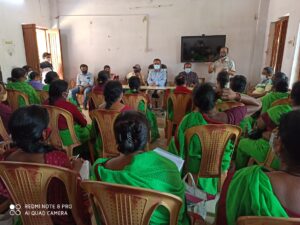 Joining the orientation programme, the Block Development Officer (BDO) of Thakurmunda Shri Shyamasundar Tudu appreciated the dedicated work of ANMs and Asha workers during the pandemic and motivated them to keep their spirits up. The Block Medical Officer and Programme Manager led the technical session for door to door survey.
Joining the orientation programme, the Block Development Officer (BDO) of Thakurmunda Shri Shyamasundar Tudu appreciated the dedicated work of ANMs and Asha workers during the pandemic and motivated them to keep their spirits up. The Block Medical Officer and Programme Manager led the technical session for door to door survey.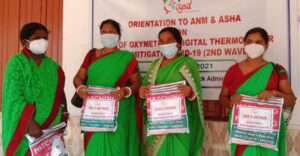 Expressing his deep sense of gratitude, the BDO openly shared that CYSD is the only organisation which has joined hands with the Thakurmunda Block Administration for several years in multiple developmental initiatives including addressing emergencies like the current biological disaster.
Expressing his deep sense of gratitude, the BDO openly shared that CYSD is the only organisation which has joined hands with the Thakurmunda Block Administration for several years in multiple developmental initiatives including addressing emergencies like the current biological disaster. With the unpredicted spread of Covid-19 second wave in a lightning speed, the role of frontline worriers/workers at the community level gets multiplied. Observing the aggrieved situation, the Government of Odisha has declared special incentives mentioning that “As ASHAs monitor home isolation cases, they will be provided one time assistance of ₹10,000 for bicycle, cupboard, slippers, umbrella and torch. Sarpanches continue to have the powers of district collectors in enforcing lockdown. Also, ₹10,000 per GKS (Gaon Kalyan Samiti) will be sanctioned for undertaking COVID related activities at village level involving the community”.
With the unpredicted spread of Covid-19 second wave in a lightning speed, the role of frontline worriers/workers at the community level gets multiplied. Observing the aggrieved situation, the Government of Odisha has declared special incentives mentioning that “As ASHAs monitor home isolation cases, they will be provided one time assistance of ₹10,000 for bicycle, cupboard, slippers, umbrella and torch. Sarpanches continue to have the powers of district collectors in enforcing lockdown. Also, ₹10,000 per GKS (Gaon Kalyan Samiti) will be sanctioned for undertaking COVID related activities at village level involving the community”. To address the above issues, CYSD has joined hands with Kolnara Block administration including CHC/PHCs. After intensive discussions, it was concluded that the AWWs, ASHAs, ANMs along with Volunteers must have N95 face masks, hand Gloves, sanitizer, and soap in adequate quantity to carry out the above activities. Additionally, each frontline worker should have one Oximeter and one infrared forehead thermometer to deal with the situation.
To address the above issues, CYSD has joined hands with Kolnara Block administration including CHC/PHCs. After intensive discussions, it was concluded that the AWWs, ASHAs, ANMs along with Volunteers must have N95 face masks, hand Gloves, sanitizer, and soap in adequate quantity to carry out the above activities. Additionally, each frontline worker should have one Oximeter and one infrared forehead thermometer to deal with the situation.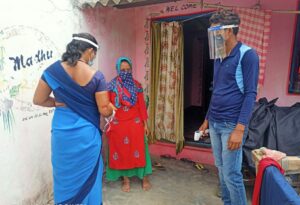 Mamata Himirika, an ASHA worker of Patraput village in Dunduli GP says, “I belong to Kuvi Kandha tribal community, but my community is still having superstition to take the vaccine to fight against COVID-19. Many thanks to CYSD for providing me shield support, like hygiene kit, health equipment and volunteers to help protect my community at this critical hour”.
Mamata Himirika, an ASHA worker of Patraput village in Dunduli GP says, “I belong to Kuvi Kandha tribal community, but my community is still having superstition to take the vaccine to fight against COVID-19. Many thanks to CYSD for providing me shield support, like hygiene kit, health equipment and volunteers to help protect my community at this critical hour”.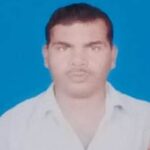 After battling depression, loneliness, joblessness and pay cuts for the last one year since the Covid-19 pandemic, people had just begun to relax. They were expecting some respite from the threat of Coronavirus this year, but the second wave has dealt an even harsher blow to them. Many poor innocent fellows like, Kumara Nayak succumbed to Covid-19 leaving his last breath within the clutch of the deadly virus.
After battling depression, loneliness, joblessness and pay cuts for the last one year since the Covid-19 pandemic, people had just begun to relax. They were expecting some respite from the threat of Coronavirus this year, but the second wave has dealt an even harsher blow to them. Many poor innocent fellows like, Kumara Nayak succumbed to Covid-19 leaving his last breath within the clutch of the deadly virus.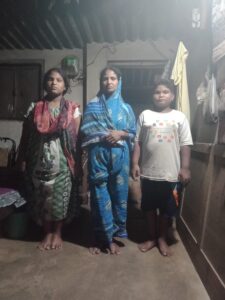 Kumar, being a low paid daily wage earner was struggling for a sustained livelihoods. Additionally, he was earning some money through driving a hired auto-rickshaw on reservation basis in leisure hours. He was managing a four-membered family – wife Rina (homemaker), a young daughter of 17 and a son of 12 years. Daughter ‘Kaberi’ has completed High School Certificate Examination and could not pursue higher education due to father’s loss of job during first phase of Covid and son ‘Krishna’ is continuing his 7th Std. Despite the impact of Covid, Kumar was managing to keep his family happy.
Kumar, being a low paid daily wage earner was struggling for a sustained livelihoods. Additionally, he was earning some money through driving a hired auto-rickshaw on reservation basis in leisure hours. He was managing a four-membered family – wife Rina (homemaker), a young daughter of 17 and a son of 12 years. Daughter ‘Kaberi’ has completed High School Certificate Examination and could not pursue higher education due to father’s loss of job during first phase of Covid and son ‘Krishna’ is continuing his 7th Std. Despite the impact of Covid, Kumar was managing to keep his family happy. In the morning of 22nd May, Minakshi Panda, a member of the tele-medicine team of the Citizen’s Support Centre (CSC) received a phone call. A woman named Menaka Pradhan from Kalyanpur of Khurda district was on the other end asking for help. Menaka’s husband Bijaya was ill and the family was unable to receive any support from neighbours and others in the village suspecting him as Corona patient. Finding no other way, Menaka reached out to CSC for help.
In the morning of 22nd May, Minakshi Panda, a member of the tele-medicine team of the Citizen’s Support Centre (CSC) received a phone call. A woman named Menaka Pradhan from Kalyanpur of Khurda district was on the other end asking for help. Menaka’s husband Bijaya was ill and the family was unable to receive any support from neighbours and others in the village suspecting him as Corona patient. Finding no other way, Menaka reached out to CSC for help.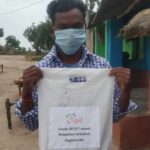 “I am fortunate and feel proud to be a part of CYSD’s Covid Response Team to protect the community. I am fully oriented on how to fight against Coronavirus while serving the community. The Health Administration should take us in to their confidence and use our power and art of mobilisation, as we know the local Kui-language. Through our collective efforts and courage, Coronavirus will certainly disappear from our communities and from our region too” says Murali Kadraka, who is committed to devote his full time for mass motivation.
“I am fortunate and feel proud to be a part of CYSD’s Covid Response Team to protect the community. I am fully oriented on how to fight against Coronavirus while serving the community. The Health Administration should take us in to their confidence and use our power and art of mobilisation, as we know the local Kui-language. Through our collective efforts and courage, Coronavirus will certainly disappear from our communities and from our region too” says Murali Kadraka, who is committed to devote his full time for mass motivation.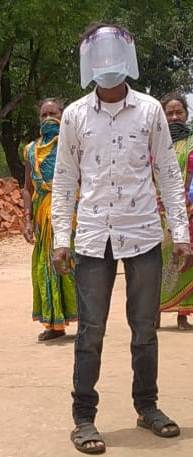 “Our community people show their strong resistance for taking the Covid vaccine because of fear of psychosis. The reason being, if anyone is found Covid positive, the health personnel will take him/her away from our community during night; put the patient in an unknown hospital and not allow relatives to stay with the patient; and finally without giving any medicines the doctor will declare the patient is dead (as we see in TV). Thus, my community does not have faith on doctors,” shared Nageswar Haraka, a Community Volunteer from Rekhapadar Village of Kolnara Block, Rayagada without any hesitation.
“Our community people show their strong resistance for taking the Covid vaccine because of fear of psychosis. The reason being, if anyone is found Covid positive, the health personnel will take him/her away from our community during night; put the patient in an unknown hospital and not allow relatives to stay with the patient; and finally without giving any medicines the doctor will declare the patient is dead (as we see in TV). Thus, my community does not have faith on doctors,” shared Nageswar Haraka, a Community Volunteer from Rekhapadar Village of Kolnara Block, Rayagada without any hesitation.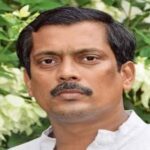 In a relatively short time, Debjeet had made very important contributions relating to justice, environment protection and evolving a new development paradigm. His contribution to looking at tribal communities living in remote areas from a perspective of appreciating and understanding their world view and learning from them has been particularly commendable, as many of those working with tribal communities do not go beyond well-intentioned but limited attitudes of help and patronage.
In a relatively short time, Debjeet had made very important contributions relating to justice, environment protection and evolving a new development paradigm. His contribution to looking at tribal communities living in remote areas from a perspective of appreciating and understanding their world view and learning from them has been particularly commendable, as many of those working with tribal communities do not go beyond well-intentioned but limited attitudes of help and patronage.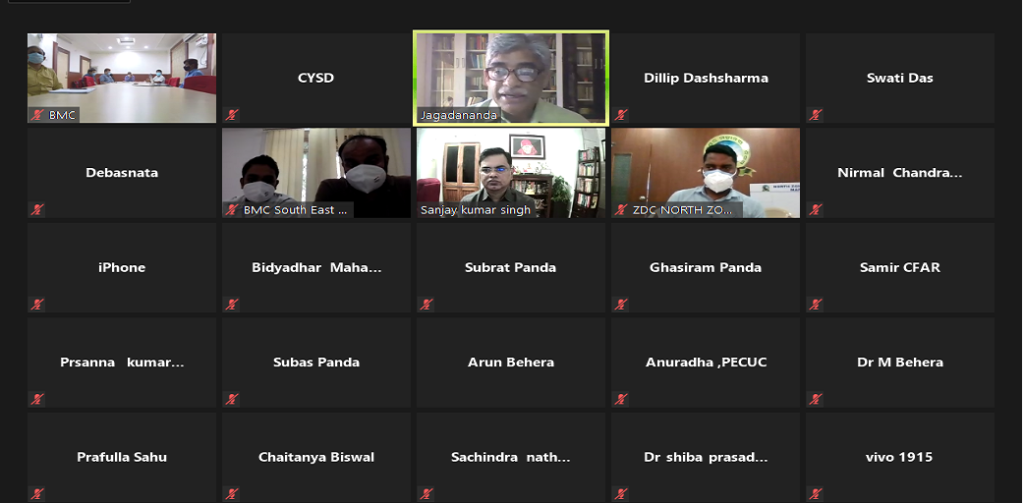 The virtual meeting was moderated by Shri Jagadananda, the Co-founder & Member-Secretary of CYSD. Addressing the virtual meeting, the Commissioner of BMC Shri Sanjay Singh welcomed the citizen leaders of Bhubaneswar Municipal Corporation and appealed for the need of a multi stakeholder approach to overcome the pandemic crisis. Shri Singh, with the presence of his Zonal Deputy Commissioners, apprised the current strategy, issues and problems on the ground and the steps taken by the Municipal Corporation so far to deal with the challenges.
The virtual meeting was moderated by Shri Jagadananda, the Co-founder & Member-Secretary of CYSD. Addressing the virtual meeting, the Commissioner of BMC Shri Sanjay Singh welcomed the citizen leaders of Bhubaneswar Municipal Corporation and appealed for the need of a multi stakeholder approach to overcome the pandemic crisis. Shri Singh, with the presence of his Zonal Deputy Commissioners, apprised the current strategy, issues and problems on the ground and the steps taken by the Municipal Corporation so far to deal with the challenges.